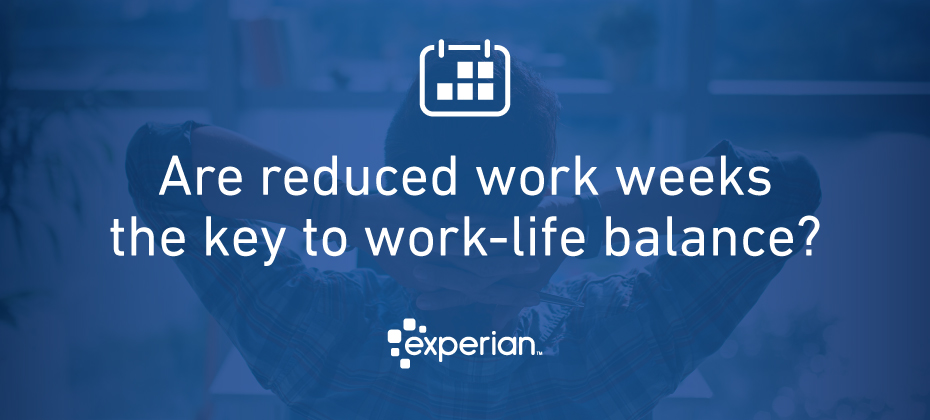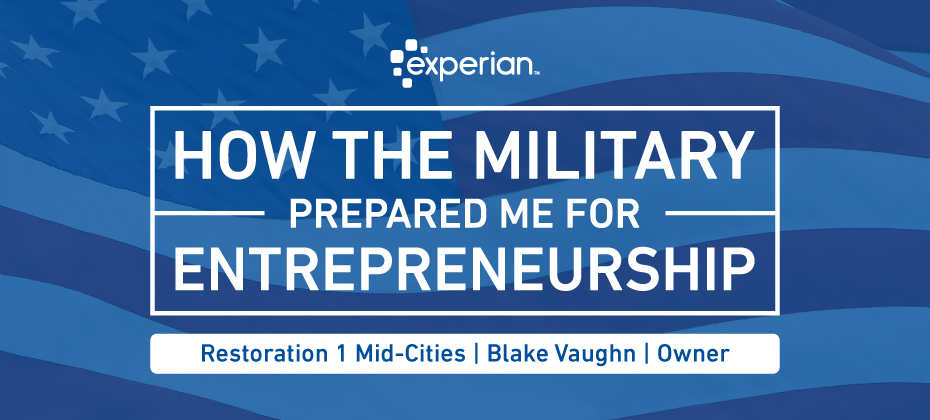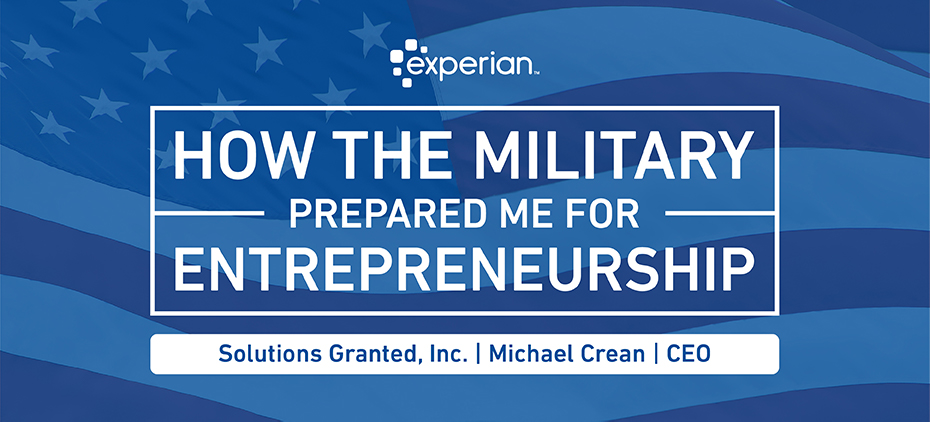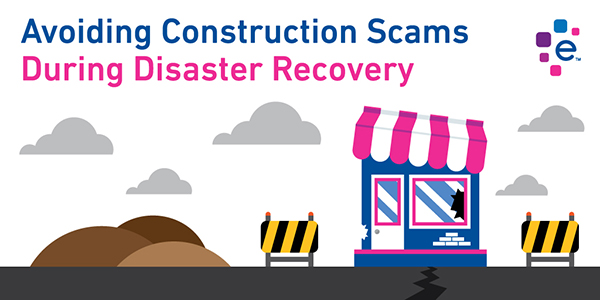Tag: Business owners

As Millennials and Generation Z enter the workplace, traditional work expectations have been questioned. Not only are companies being challenged for their dress code, the younger generation also has higher expectations of the benefits they’ll receive. With the global economy growing at a rapid pace, boomers retiring and others leaving the American workforce to pursue entrepreneur opportunities, qualified job seekers can be a scarce commodity. At least 72% of organizations are increasing their benefits offerings to attract and retain employees. To build a more attractive compensation package and entice more applicants, should companies embrace the “work-life balance” concept with reduced work weeks? A Shorter Work Week Defined While the origins of a reduced work week idea are unclear, ad agencies of the 1960’s may have started the trend when they noticed a reduction in productivity during the summer months. They began a program called “Summer Fridays” and offered half-days or full Fridays off. State employees in Utah began working ten-hour days, Monday through Thursday, in 2008. The decision was based on the expectation of reducing operating costs. Although Utah reverted back to five-day work weeks in 2011, many state and local governments still operate on alternative schedules. Many organizations already offer reduced work week programs and have found that employees are more productive in a shorter amount of time. The focus is more consistent, sick days reduced and, considering the amount of work an employee would likely accomplish before going on vacation, the motivation to complete tasks increases. Companies Offering Flexibility Amazon made headlines across the business world with its announcement of a 30-hour work week pilot program in 2016. In an effort to restore work-life balance, especially after a New York Times article claimed that Amazon pushed their employees to work day and night, the policy sought to offer flexibility and encourage more creativity. Even before Amazon made its move, audit firm KPMG was already offering 4-day work weeks to increase morale and productivity among its employees. The program wasn’t available to all employees and managers had final discretion for whom it would be offered. Project management company Basecamp offers a 4-day work week for employees who’ve been on staff for at least a year. May through September is the only time of year employees can take this option and they only have to work four 8-hour days. The CEO of the advertising agency, SteelHouse, implemented a program that gives employees a 3-day weekend every month of the year. Many months already have a 3-day weekend due to certain holidays. For those months that don’t, the company offers “SteelHouse Days” on either a Monday or Friday. In Germany, IG Metall, the country’s largest metalworker’s union, recently struck a deal to reduce their work week to 28 hours. In an effort to allow more time at home for those with younger children, the move will also allow companies to offer more 40-hour week contracts to others as needed. The deal is expected to reverberate throughout the EU with more businesses considering the same. According to The Guardian’s report in 2011, employees in EU countries work considerably less than in the U.S. Luxembourg, for example, reveals the highest productivity at only working 29 hours on average per week. Lessons Learned from Executives Since a shorter, or compressed, work week has already been piloted in many organizations, executives can share best practices for implementing the program. Concerns were mainly around state labor laws, wage laws, vacation days and holidays. For instance, in California, overtime begins after an employee works 8 hours in a single day. Management must also lead the charge and allow the individual to take a 3-day weekend without work expectations such as being scheduled for a meeting on their day off. If possible, start small and monitor productivity before rolling out the program company-wide. There are several flexible options for making a reduced work week possible including: Four 10-hour work days Summer Fridays One 3-day weekend every month Staggering or rotating schedules so the business can operate 5 days a week if required Allowing employees to come in earlier rather than staying later In a tight labor market where applicants have more than one job offer on the table, employers are offering even more impressive perks like reimbursement for vacations. It’s no surprise that job seekers are doing their research and being choosy about where they land. Considering reduced work weeks and 3-day weekends, even if it’s only part of the time, is one benefit that is very attractive.

Experian Business Information Services has been honoring Veteran Entrepreneurs in the month of May on the Small Business Matters blog featuring a series of posts highlighting military veterans who went into business for themselves. We asked them about making the transition from military to small business, what challenges they faced, and how their career in the service prepared them to run their own small businesses. A common thread among the veteran entrepreneurs we’ve interviewed for this series is family. They came from a military family, they built a family with those who work in their business, or they left active duty to spend more time with their family. To these veterans, it is an honor and duty to serve their country. They show the same commitment and respect to those closest to them. With a family legacy of military service, entrepreneurship and a “passion to serve”, this veteran honors his heritage by sharing his story, starting with his father’s choice to join the Army. In his late teens, Blake Vaughn’s father was involved in a deadly bar fight. When he was given the choice to go to prison or join the Army, he chose to serve. He left the military early to take care of his ailing parents, and, after his parents died, he took in his siblings as well. He soon started his own family and worked for the post office before going into business for himself. In 26 years, he grew his business from nothing into a multi-million-dollar company. Between the 2001 recession and a divorce, the family suffered multiple setbacks, including foreclosure on their home. After the divorce, Blake, still, a teenager, decided he needed to do something to help lift his family out of poverty and help his mother put food on the table. He decided to follow in the footsteps of his father, grandfather, uncles, and brother and join the military. What did you like most about serving in the U.S. Military? “Serving my country and building strong relationships with people. On a personal level, it’s fulfilling to know you’re participating in something greater than yourself. I feel weird and undeserving when someone says, “thank you for serving.” I think of my brother… his vehicle was destroyed by an IED. Thankfully, nobody got hurt. I don’t like to compare the two of us but at the same time, I at least participated in the security of the country. I’ve always had a huge love for our history, values, the Constitution and our country. My wife homeschools our son and part of that is history… so from the perspective of serving in the military, sharing that with my son is cool. The most enjoyable part is the people and the camaraderie. I was a junior officer, so I learned the leadership that comes with that. I’m a big fan of leadership and personal development. As a leader, people don’t care how much you know until they know how much you care. I am more interested in getting to know people first and building relationships and letting them shine. By doing that, I had some excellent relationships with those guys I led. I still have great relationships with them.” What inspired you to make the transition to entrepreneurship? “My father was a veteran and entrepreneur. He was given the choice to go to prison or go to the army after a bar fight. He chose to serve and straightened up his life. He got out and worked for a little while until he decided to start his own business. He built a $12 million business and then lost it after 20+ years. I wanted to serve just as my father, grandfather, several uncles, and brother did as well, but I also wanted to pursue entrepreneurship because I saw the satisfaction that comes from creating something for your family.” Blake worked through college earning his MBA in marketing while waiting to go into the military. Due to delays in his selection process and a government sequester, it took many years before Blake was finally able to attend officer candidate school in the Navy. He served as a gunnery/ordnance officer on the USS CHAFEE in Hawaii before exiting with an honorable discharge into the reserves. In that time, he also married his college sweetheart, whose first husband had passed away and left her with a 1-year-old son. Between his time working through college and after leaving the military, he “bounced around to all areas of business”, working various customer service, finance and hospitality jobs before finally taking the entrepreneurship leap. Tell us about your business. “We started our first business, a restoration franchise in August 2016, handling water and fire damage. Our second business, Patriot Services Construction, started in May of 2017. In our first calendar year, we generated $1.1 million in gross revenue. For our 2nd full year, we hope to close over $2M. We’re also adding roofing to our services.” Blake’s business can be found online here: Restore NTX LLC & Patriot Services LLC What skills from your military career do you apply most often to your business? “Administrative, risk assessment and management, program management, leadership, motivation, inspection, and accountability. It (the military) was extremely grueling work. Only about 2% is cool. The other 98% is mundane repetitive tasks. It can tear you down, so you have to keep focused and motivated to do what’s necessary because if the country calls on you, you have to be ready. I find fulfillment from motivating people and that allowed me to press harder and stay focused. It was a great learning experience for me.” Did you access Government programs to launch your business such as SBA loans? “Yes, we did get an SBA 7A loan for $110K when we first started. We combined that with personal funds and I took on a partner when we started - a guy I know from church named Jeff Lott. We both wanted financial freedom and control of our time. We partnered together to buy vehicles and equipment to launch our business. There’s a book called Rocket Fuel that talks about the combination of visionaries and integrators when building a business. The book is good. I’m a visionary. I look for new revenue sources and he’s the integrator. We compliment each other in business. We’ve found a really good spot. It’s been an excellent partnership.” What is the biggest challenge about being an entrepreneur? “Facing the unknown and taking risks that could cost us greatly. I took away from the military, and my time during training especially, that you’re used to having pleasures in life, being comfortable, and they strip that away… 6 months living out of a backpack. You learn perseverance. You don’t need a lot to live. It allows you to lay it all on the line when you do have challenges. Entrepreneurs, when failure looks like it could happen, they begin to backtrack. Several people I know went back to their corporate jobs. You have to define what is essential and get rid of everything else that doesn’t take you closer to what’s important to you. It’s a challenge… “what if we fail”. Jeff and I didn’t have experience. In our industry, people typically use a direct sales force to get off the ground, build relationships with trade partners to refer work. We tried that and it didn’t get off the ground. Instead of getting scared, we looked into internet marketing instead. We shifted heavily into internet marketing. We have no salespeople whatsoever and 90% of our business now comes from internet marketing. Creating the right mindset is most important, and being willing to take a risk is part of that. As Grant Cordone says, “Commit first and figure it out later.” We also try to automate our business as best we can, taking advice from Tim Ferris’ 4 Hour Work Week. What is the greatest reward in being an entrepreneur? “Our technicians do hard work and their mindset is serving people, not just making money. It was nice to volunteer a short time in Houston after Hurricane Harvey and tracking through the disaster to help with recovery. We didn’t need to be directed. We knew what to do so we just got to work helping those folks. There’s also satisfaction in creating something important and it’s nice to have more freedom to enjoy life.”

For the month of May, as we head into Memorial Day, the Small Business Matters blog will feature a series of posts highlighting military veterans who went into business for themselves. We’ll ask them about making the transition from military to small business, what challenges they faced, and how their career in the service prepared them to run their own small businesses. Throughout this interview series, it’s become obvious that veteran entrepreneurs, or vetrepreneurs, seem to possess a few similar traits. Whether these veterans were born with these qualities, they were instilled during childhood or they honed them during their active duty service is still to be determined. Veteran entrepreneurs are resourceful leaders and seem to readily adapt to life as a business owner. An Army veteran who recognized his entrepreneurial spirit in high school and needed a job after transitioning from the military, shares his self-described, “dumb luck” story with us. Micheal Crean’s first taste of owning a business was in junior high school. He would buy Little Debbie snacks and sell them to his friends. His parents worked for 30 years in a GM factory, doing the same job every day, something Crean described as “monotonous”, with no complaints. They took their children on family vacations and allowed them to play whatever sport they dreamed. He looked up to them, their persistence and tenacity to do whatever it took to take care of their family. After spending 9 years in military – 4 years at Ft. Bragg’s 82nd Airborne Division on special assignment – Crean felt tired of not being home for his own family. He would go on a 15-month deployment, leaving his wife and baby and come home to a “walking, talking child”. He imagined, after seeing the globe and many different points of view, that he’d do something with his life. He ended up doing something he never imagined. “I had to make a decision of what was more important to me.” What did you like most about serving in the U.S. Military? “The ability to work on a global level protecting those who could not protect themselves.” What inspired you to make the transition to entrepreneurship? “If it wasn’t for kids, I wouldn’t have been out of the Army. I served and now I wanted to be a dad. It’s kind of a story of dumb luck and needing a job. I interviewed with a company who hires veterans in the DC area. They asked me if I knew anything about computers. I knew I could learn anything I put my mind to… but I also get bored really easily. The government contracting world puts you in a box and you do that job for as long as that contract goes on. This was around 1999. I decided to step out into commercial space. I was valuable because of my leadership qualities. I found myself trying to stay in front of the dot com failure wave. It caught up with me. I was mad and disappointed in myself because I’d given up a military career and now I was on unemployment. A general contracting company offered me a job to tear things down. At the same time, a good friend who worked at collection agency asked me to come build computers and network for them. Another person who was a VC said their full time IT guy left and asked me if I would do it part time. I would do whatever it took to feed my family. My friend at the VC company was doing textile cleaning for high end homes and the White House. Someone wanted me to help build a network. That was around 2001 and it just went on from there. “ Michael Crean started Solutions Granted in 2001 in response to the need for information technology and information security, or cybersecurity, expertise. As someone who fell into the business, he credits his adaptability and resilience with keeping his business going, even through the recession. Solutions Granted helps businesses in many markets and government entities with IT security but also develops new solutions as needed in the ever-changing digital landscape. What skills from your military career do you apply most often in your business? “Logical thinking, crisis management, effective leadership… The things I did in the military - not having running water or eating a meal that comes from a brown plastic bag – taught me to get creative. As a business owner, that really lets me know what’s important in life. I don’t take things that seriously because I know what the military goes through. In my business, what we’re doing is important but no one’s going to die today. The military gave perspective. And adaptability! The military taught me that! How to adapt and overcome in the face of adversity. Entrepreneurs need to have this too. Our business model has changed a couple times through necessity.” Did you access Government programs to launch your business such as SBA loans? “No. No small business loans. No mentors for me. The only idea I had on how to run a business was, to be honest, honorable, ethical, and offer a good service. We’re self-funded. We never needed business loans. We did use lines of credit to do what we do. Maybe my business would be different if I did that. We’ve been reinvesting in our company along the way. Hiring and growing at a measured pace. I learned the lesson, ‘take care of your soldiers.’ We take care of our employees. One of the largest expenses is healthcare. I pay 100% of my employee’s benefits – and for an employee who’s been with us over 10 years, for his wife and kids too.” What is the greatest reward in being an entrepreneur? “Being around to affect my employees' lives and watching their families grow and prosper. The military taught me, ‘it’s our own free will to say yes’. When you set out to start your own business you must remember that you chose this. It wasn’t forced on you, you chose this. I have three grown daughters and two younger children at home. My oldest daughter started working for me after she graduated college. She runs accounts receivable, order management and accounts payable. I get to recreate time with my daughter, time I lost during deployments. I’m almost 18 years into this. One employee has been with me for 10 years, since age 18. How does life get any better? When I joined the military, I wanted to make a difference. I wanted to leave something for my children, protect those freedoms and enjoy being a kid. I can continue to do this because cybersecurity is such a danger to businesses out there. I guess I’ve traded one battlefield for another.” Is there anything else you’d like to share? “Be passionate about something and be good at what you do. Stop worrying about what’s happening around you to others. When a door opens, don’t be afraid to walk in. The unknown could be the greatest level of success you could not have predicted.”

With the Tax Cuts and Jobs Act of 2017 making dramatic changes in new tax law, business owners should be asking themselves how to plan for the future.

Consumers are being urged to monitor and lock or freeze their credit profile, but how should small business owners respond? Will a freeze impact a business?

When a small business is damaged by a natural disaster — be it a hurricane, flood, earthquake or tornado — recovery presents its own set of hazards. There is, of course, the immediate cost of lost business. There are both short- and long-term physical dangers posed by weakened walls and ceilings, exposed power cables and mold. And then there are the threats posed by skilled disaster recovery scam artists who see small business owners as easy prey. Kenneth Citarella, CFE, knows all about these post-disaster scams. A former New York state prosecutor, Citarella now works for Guidepost Solutions LLC, which provides investigations, compliance, monitoring, and security and technology consulting solutions for clients in a wide range of industries. In the wake of Super Storm Sandy, which devastated large sections of coastal New Jersey, Brooklyn and Staten Island in 2012, Citarella served as a Guidepost Solutions “Integrity Monitor,” making sure contractors were in fact performing the work for which they were being paid. “The days and weeks following a natural disaster are times of great stress and confusion,” Citarella said. “This is the perfect breeding ground for scams of all kinds. Small business owners need to be aware of how they may be targeted and how to avoid being a victim.” How Fraudsters Find Their Marks While natural disasters are horrific events, they’re great for contractors and restoration companies for whom such events are their bread and butter. As soon as a disaster occurs, it’s not unusual for construction companies to descend on the affected site, blanketing the area with pamphlets and brochures, and stuffing mailboxes with business cards. While many contractors are legitimate, there can be a good number of storm chasers who are just out to make a fast buck. At a time when construction labor is at historic lows, small business owners may find themselves working with a firm with less than stellar credentials “The more enterprising scam artists will take the time to go door-to-door, offering low-ball prices or even offering to cut the business owner in on the fraud,” Citarella said. “For example, they’ll offer to do the $75,000 worth of restoration work that is actually required, bill the business owner’s insurance company for $100,000, and then split the difference. This is an obvious solicitation of fraud and should be reported immediately to the local police.” Common Types of Post-Recovery Fraud In addition to the insurance scam described above, Citarella discussed other forms of fraud a small business owner might encounter following a major disaster. “The most common type of recovery fraud involves a contractor who shows up to do the first two or three days’ worth of work, and then just disappears. Another type involves the use of lower-grade or otherwise substandard materials,” Citarella said. Citarella also noted that otherwise well-meaning contractors may buckle under the pressure a natural disaster creates, leaving the business owner out thousands of dollars and still unable to operate. “A small contractor can easily get in over his head,” Citarella stated. “He may not be able to get enough workers, have problems with his supply line, or be managing too many projects at once. There may be no criminal intent here, but the outcome is the same.” How to Avoid Contractor Fraud Find reliable, licensed contractors and validate their businesses before hiring them to help you rebuild. Experian’s ContractorCheck.com/Hurricane is being offered as a free resource to those affected during this time of recovery. This website enables you to find contractors and easily check the critical components of a contractor’s business background, including license, bond and insurance data (if an when available from state licensing boards). Click here to see a sample report. Also, the Better Business Bureau (BBB) offers a list of recommendations to business owners and anyone else looking to hire a construction contractor, among their recommendations: 1. Ask for Recommendations. Ask friends, relatives and fellow business owners to recommend contractors they have previously hired. 2. Check Their Track Record. Use bbb.org or other business review websites to get customer reviews, complaints and any notices of criminal violations. 3. Verify the Business License. Make sure the contractor under review has a valid license to do business in your state. 4. Get Multiple Quotes. Always get at least three quotes for any particular job. Any quote that is unusually low is probably one to avoid. Remember the old adage, “If something seems too good to be true, it probably is.” 5. Look for Signs of “Professionalism.” A reputable contractor will arrive in a vehicle that is clearly marked and branded, and may wear a uniform bearing his/her company name. 6. Request References. Ask the contractor for a list of previous customers you can contact and discuss their satisfaction with the contractor’s service. 7. Check Professional Affiliations. Ask if the contractor belongs to any trade organizations. Such companies are usually bound to operate according to a strict code of ethics. 8. Avoid Large Up-Front Payments. Pay by check or credit card for added protection. Avoid paying in cash. 9. Get Everything in Writing. Demand a written contract, and make sure to read it carefully, especially the fine print. Make sure the contract includes the contractor’s name, street address, telephone number, email address and state license number. Fill in any blank spaces. Don’t sign anything you don’t understand. “Document every step of the reconstruction progress,” Citarella added. “Take pictures every day to record the contractor’s progress. Smartphone pictures can be invaluable in the event of contractor misbehavior or if there is a challenge by your insurance carrier.” Citarella described four “gears” that run any reconstruction machine. “There’s the business owner, the adjuster, the carrier and the contractor. All four need to work together to get a job done right. However, the only one who has a stake in effective cooperation is the business owner. So if you have a business that needs post-disaster repair, take the time to make sure it’s done right.” If you are in the process of rebuilding following Hurricane Harvey or Irma and need to check the contractor you are working with, go to www.contractorcheck.com/hurricane to receive up to 15 free reports. Also, Sam Fenerstock of Credit Manager’s Association published an excellent article titled “How To Assist Your Customers To Stay In Business After Natural Disaster“, it contains lots of great information about disaster preparedness and working with your customers if they are impacted by a natural disaster.

Business credit scores are vitally important to small businesses. In today’s competitive market, a faulty credit score can dramatically affect the bottom line of any business and can lead to higher interest rates, difficulty in securing loans, and potential problems with suppliers. Conversely, favorable credit history can serve as the linchpin to success. It not only can save a small-business owner a considerable amount of money, but it also can provide access to capital with which to grow the business. So, let’s do a quick review of some common business credit misconceptions. If I have a small business, I automatically have a small-business credit score. FALSE. If a business doesn’t have at least one tradeline and/or one demographic element (such as length of time the business has been credit active, how many employees, etc.), then a credit report and score are not generated. To establish a business credit score, you should ensure that your business vendors are reporting your payment history to the major credit reporting companies. This will help to build your commercial credit profile. There are no drawbacks to using my personal credit score, rather than a business credit score, when attempting to secure funding. FALSE. It’s true that many small-business owners fail to separate their business expenses from their personal expenses. However, the weakness of relying solely on personal credit is clear. If your business ever becomes at risk, your personal credit score becomes at risk as well. Anyone can request and view my business credit score. This is TRUE. Unlike personal credit reports, which are regulated and can be viewed only with the permission of the report holder, business credit reports are available to the public. This means that anyone — including potential lenders and suppliers — can openly view your business credit report. Given the public availability of business credit reports, it’s imperative to monitor your business credit score. There are things I can do to improve my business credit score. TRUE. It’s vitally important to be aware of possible inaccuracies or negative credit data on your credit file, should they exist. As the business owner, you may request that the credit reporting companies correct any mistakes to ensure that your credit file is accurate. By simply increasing your awareness of the factors that drive your current company credit score, you can begin to effectively manage your credit behavior. As always, the best thing that you can do is pay all financial obligations on time.

Women business owners are feeling pretty positive about the future according to a recent survey by Bank of America titled, “2016 Women Business Owner Spotlight.” The study revealed women small business owners are more optimistic than male business owners about revenue and growth prospects of their businesses. This inaugural survey of 1,000 male and female small business owners, focused squarely on the aspirations and pain points of women. Among the key findings, female business owners are more excited about the future and focused on the success of their business compared to male business owners, with 54 percent of women surveyed expecting revenue to increase over the next 12 months compared to 48 percent of men. Bullish on business growth When considering the growth potential of their business over the next five years, the survey found women respondents felt more optimistic than men. Results showed that 60 percent of women business owners expected their businesses to grow versus 52 percent of men, an 18 point drop for men when compared to 2015. Credit cards The two main sources of funding used by women entrepreneurs include their business credit cards (28 percent) and bank loans (23 percent). Interestingly, 16 percent of women business owners indicated they use personal credit cards to fund their business. However, using personal credit to fund business activities presents some big challenges because if your business ever becomes at risk, it can also affect your personal credit. Experian recommends keeping business credit transactions completely separate from personal credit. Doing so protects personal assets and helps entrepreneurs build strong credit profiles. Also, many lenders are using blended credit scores that evaluate business and personal credit profiles when making lending decisions, so it is best for entrepreneurs to do all they can to build a strong business credit profile. Experian has more information about the dangers of using personal credit to fund your business on the Business Credit Facts web site. Access to capital and clients While access to capital has improved in recent years, many women don’t feel that way. In fact, the study showed that 28 percent of women said they do not have the same access to capital as their male counterparts. Access to clients, however, is one area where women feel they are on more equal footing, with 88 percent saying they have the same or greater access to clients than men. Increasing the minimum wage Women small business owners are more likely to support raising the minimum wage. In fact, the survey indicated that 55 percent of women entrepreneurs think raising the minimum wage would have a positive impact on the economy, compared to only 41 percent of men. Issues that concern small business owners While both women and men small business owners share similar views on top economic concerns over the next 12 months, more women small business owners are concerned about: Corporate tax rates (54 percent of women vs. 45 percent of men). Strength of the U.S. dollar (59 percent of women vs. 45 percent of men). Commodities prices (52 percent of women vs. 44 percent of men). To learn more about the study go to bankofamerica.com
